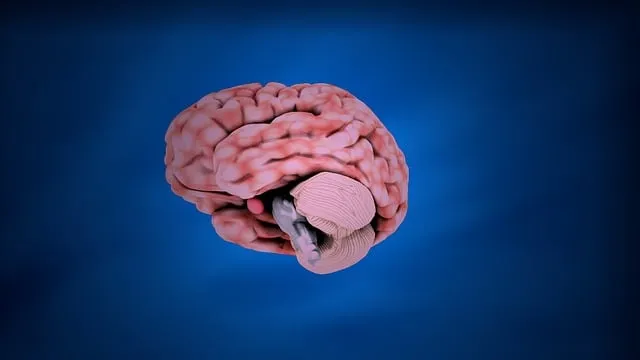Mental wellness journaling, popularized at the Lakewood Kaiser Permanente mental health center during visiting hours, is a powerful self-care tool for personal growth and emotional well-being. By allocating dedicated time to reflect and write without judgment, individuals gain insights into their thoughts and feelings, identify patterns, cultivate positive thinking, and develop effective coping mechanisms. This practice fosters resilience, enhances overall mental wellness, and provides a safe space to process daily experiences and stress factors. A supportive journaling environment, designed as a personal sanctuary, encourages consistency, reduces burnout risk, and promotes holistic mental health, as highlighted by professionals at the Lakewood Kaiser Permanente mental health center.
Unwind your mind and embark on a journey of self-discovery with mental wellness journaling. This powerful tool, backed by practices at Lakewood Kaiser Permanente mental health center, offers a sanctuary for processing thoughts and emotions. Learn how setting up a supportive space and employing effective techniques can transform this exercise into an integral part of your daily routine. Discover tips for consistency inspired by the expertise of the Mental Health Center, enabling you to navigate life’s challenges with enhanced emotional resilience during your next visit to Lakewood Kaiser Permanente.
- Understanding Mental Wellness Journaling: A Personal Journey of Self-Discovery
- Benefits of Regular Journaling for Emotional Health at Lakewood Kaiser Permanente
- Creating a Supportive Environment: Setting Up Your Ideal Journaling Space
- Effective Techniques and Prompts for Capturing Your Thoughts and Feelings
- Integrating Journaling into Daily Life: Tips for Consistency from the Mental Health Center
Understanding Mental Wellness Journaling: A Personal Journey of Self-Discovery

Mental wellness journaling is a powerful tool for self-discovery and personal growth. It involves dedicated time to reflect on one’s thoughts, emotions, and experiences, often in a structured format. This practice allows individuals to gain deeper insights into their mental health and overall well-being. By putting pen to paper, or fingers to keyboard, one can explore their feelings, identify patterns, and cultivate positive thinking.
At the Lakewood Kaiser Permanente mental health center, visiting hours offer a quiet space for individuals seeking burnout prevention strategies for healthcare providers. Journaling provides a similar sanctuary, enabling people to process their day-to-day experiences, including stress factors and anxiety relief triggers. It’s a personal journey that can help one understand their unique challenges and develop effective coping mechanisms, ultimately fostering resilience and enhancing overall mental wellness.
Benefits of Regular Journaling for Emotional Health at Lakewood Kaiser Permanente

Regular journaling has been shown to significantly enhance emotional health, a benefit particularly emphasized by the professionals at Lakewood Kaiser Permanente mental health center visiting hours. By committing thoughts and feelings to paper, individuals can better understand their emotional patterns, leading to improved self-awareness and coping mechanisms. This practice allows for the processing of experiences, both positive and negative, fostering resilience and promoting mental wellness.
The act of journaling provides a safe space for expression, encouraging positive thinking and constructive reflection. At Lakewood Kaiser Permanente, they recognize that this simple yet powerful tool can complement traditional therapy and mental health policy analysis and advocacy efforts. Moreover, regular journaling has been linked to better sleep quality, reduced stress levels, and improved decision-making abilities—all crucial aspects of maintaining holistic mental wellness, as supported by studies in Mental Wellness Coaching Programs Development.
Creating a Supportive Environment: Setting Up Your Ideal Journaling Space

Creating a supportive environment is a crucial step in making mental wellness journaling an enjoyable and consistent practice. Think of your journaling space as your personal sanctuary—a place where you can unwind, reflect, and reconnect with yourself. At Lakewood Kaiser Permanente mental health center visiting hours might inspire you to consider the ambiance that promotes mindfulness and clarity. Ensure your space is well-lit, comfortable, and free from distractions. A quiet corner in your home, a cozy chair by a window, or even a dedicated desk can transform into an ideal journaling oasis.
Surround yourself with items that evoke positivity and inspire creativity. This could include motivational quotes, nature-inspired decorations, or objects that hold personal meaning. Incorporating self-care practices like candles, essential oils, or soothing music can enhance the overall experience, making it easier to delve into your thoughts and emotions. Remember, when you create an inviting and comfortable journaling environment, you’re taking a significant step towards burnout prevention and prioritizing your mental wellness.
Effective Techniques and Prompts for Capturing Your Thoughts and Feelings

Mental wellness journaling is a powerful tool for self-discovery and personal growth. At the Lakewood Kaiser Permanente mental health center visiting hours, many patients find it beneficial to capture their thoughts and feelings as a way to promote emotional well-being. Effective techniques involve setting aside dedicated time each day or week to write freely, without judgment. This practice allows individuals to explore their emotions, identify patterns, and gain insights into their inner strength development.
Prompts can guide the journaling process, especially for those new to this practice. Examples include reflecting on daily experiences, expressing gratitude, or exploring fears and aspirations. For anxiety relief, writing down specific worries and then challenging negative thoughts can be helpful. Emotional well-being promotion techniques such as mindfulness exercises or setting small achievable goals can also be incorporated into the journaling routine, making it a versatile tool for enhancing mental health.
Integrating Journaling into Daily Life: Tips for Consistency from the Mental Health Center

Integrating journaling into your daily routine can be a powerful tool for enhancing mental wellness, as recommended by the Lakewood Kaiser Permanente mental health center. To maintain consistency, consider setting aside a dedicated time each day for this practice. Whether it’s first thing in the morning or before bedtime, choosing a consistent time helps make journaling a habit. Start with just 10-15 minutes and gradually increase the duration as you become more comfortable.
The Lakewood Kaiser Permanente mental health center also suggests incorporating diverse writing styles to keep things interesting. This could involve free-writing, where you jot down thoughts without censorship, or structured exercises like gratitude lists, reflecting on visiting hours at the mental health center, or exploring specific themes related to self-awareness and growth. For instance, a recent Mental Wellness Podcast Series Production might have inspired new ideas to write about. Engaging in regular self-awareness exercises can boost confidence and provide valuable insights into your thoughts and feelings, ultimately contributing to a healthier mind.
Mental wellness journaling is a powerful tool accessible to everyone, as evidenced by the practices at Lakewood Kaiser Permanente mental health center. By integrating this practice into daily life, individuals can enhance emotional well-being and embark on a journey of self-discovery. Whether it’s during visiting hours at the mental health center or any moment in your routine, dedicating time to reflect and record thoughts and feelings can foster resilience and promote mental clarity. Through tailored prompts and a supportive journaling space, anyone can unlock the benefits of this therapeutic habit and navigate life’s challenges with increased confidence.






